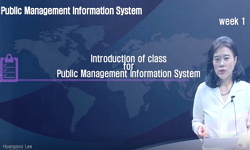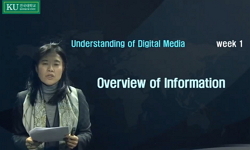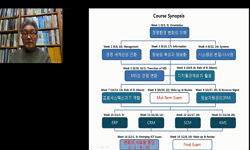This study illustrates the individual motivations and outcomes of professional community participation. The data for the study were collected using an online questionnaire, which was distributed among highly educated commercial professionals in variou...
http://chineseinput.net/에서 pinyin(병음)방식으로 중국어를 변환할 수 있습니다.
변환된 중국어를 복사하여 사용하시면 됩니다.
- 中文 을 입력하시려면 zhongwen을 입력하시고 space를누르시면됩니다.
- 北京 을 입력하시려면 beijing을 입력하시고 space를 누르시면 됩니다.

Building bridges between professionals – expectations and outcomes of participation in professional communities
한글로보기https://www.riss.kr/link?id=A103950404
-
저자
Elina Koivisto (Aalto University School of Business) ; Pekka Mattila (Aalto University School of Business) ; Anna Hannien (Aalto University School of Business)
- 발행기관
- 학술지명
- 권호사항
-
발행연도
2013
-
작성언어
English
- 주제어
-
등재정보
KCI등재
-
자료형태
학술저널
- 발행기관 URL
-
수록면
338-355(18쪽)
-
KCI 피인용횟수
3
- DOI식별코드
- 제공처
-
0
상세조회 -
0
다운로드
부가정보
다국어 초록 (Multilingual Abstract)
This study illustrates the individual motivations and outcomes of professional community participation. The data for the study were collected using an online questionnaire, which was distributed among highly educated commercial professionals in various business areas. The questionnaire was composed of questions mapping attitudes and behaviors in professional communities. These data were analyzed using factor analysis and cluster analysis in order to define the underlying dimensions of professional communality and to form a typology of participants attending communal events and contributing to the knowledge of these communities.
On the basis of factor analysis of the data, 11 factors influencing community participation emerged. These were: identification, employer’s attitude, social interaction ties, trust, altruism, knowledge power, time and effort, reciprocity, brand image versus identity, reputation and status, and knowledge self-efficacy. Furthermore,when applying cluster analysis to the data, four different participation profiles could be extracted based on these factors. These were named communal altruists, information brokers, strongly committed professionals, and social capital hoarders. These groups differ significantly due to their expectations of outcomes as well as their behaviors within professional communities.
참고문헌 (Reference)
1 홍희숙, "의류 브랜드 커뮤니티의 이용욕구 충족과 커뮤니티 몰입의 관계: 의류 브랜드 이미지의 조절효과" 한국마케팅과학회 17 (17): 51-89, 2007
2 Wasko, M., "Why should I share? Examining social capital and knowledge contribution in electronic networks of practice" 29 : 35-58, 2005
3 Wu, W-Y., "Why should I share? Examining consumers’ motives and trust on knowledge sharing" 50 : 11-19, 2010
4 Constant, D., "What’s mine is ours or is it? A study of attitudes about information sharing" 5 : 400-421, 1994
5 Chiu, C., "Understanding knowledge sharing in virtual communities : An integration of social capital and social cognitive theories" 42 : 1872-1888, 2006
6 Putnam, R. D., "Turning in, turning out : The strange disappearance of social capital in America" 28 : 664-683, 1995
7 Chen, C., "To give or to receive? Factors influencing members’ knowledge sharing and community promotion in professional virtual communities" 47 : 226-236, 2010
8 Jarvenpaa, S., "The use of collaborative electronic media for information sharing : An exploratory study of determinants" 9 : 129-154, 2000
9 Nonaka, I., "The knowledge-creating company : How Japanese companies create the dynamics of innovation" Oxford University Press 1995
10 Felin, T., "The knowledge-based view, nested heterogeneity, and new value creation : Philosophical considerations on the locus of knowledge" 32 : 195-218, 2007
1 홍희숙, "의류 브랜드 커뮤니티의 이용욕구 충족과 커뮤니티 몰입의 관계: 의류 브랜드 이미지의 조절효과" 한국마케팅과학회 17 (17): 51-89, 2007
2 Wasko, M., "Why should I share? Examining social capital and knowledge contribution in electronic networks of practice" 29 : 35-58, 2005
3 Wu, W-Y., "Why should I share? Examining consumers’ motives and trust on knowledge sharing" 50 : 11-19, 2010
4 Constant, D., "What’s mine is ours or is it? A study of attitudes about information sharing" 5 : 400-421, 1994
5 Chiu, C., "Understanding knowledge sharing in virtual communities : An integration of social capital and social cognitive theories" 42 : 1872-1888, 2006
6 Putnam, R. D., "Turning in, turning out : The strange disappearance of social capital in America" 28 : 664-683, 1995
7 Chen, C., "To give or to receive? Factors influencing members’ knowledge sharing and community promotion in professional virtual communities" 47 : 226-236, 2010
8 Jarvenpaa, S., "The use of collaborative electronic media for information sharing : An exploratory study of determinants" 9 : 129-154, 2000
9 Nonaka, I., "The knowledge-creating company : How Japanese companies create the dynamics of innovation" Oxford University Press 1995
10 Felin, T., "The knowledge-based view, nested heterogeneity, and new value creation : Philosophical considerations on the locus of knowledge" 32 : 195-218, 2007
11 Constant, D., "The kindness of strangers : The usefulness of electronic weak ties for technical advice" 7 : 119-135, 1996
12 Gray, P. H., "The impact of knowledge repositories on power and control in the workplace" 14 : 368-384, 2001
13 Chen, I. Y. L., "The factors influencing members’ continuance intentions in professional virtual communities – a longitudinal study" 33 : 451-467, 2007
14 Li, Y., "The effects of corporate-brand credibility, perceived corporatebrand origin, and self-image congruence on purchase intention : Evidence from China’s auto industry" 24 : 58-68, 2011
15 Teece, D., "Strategies for managing knowledge assets : The role of firm structure and industrial context" 33 : 35-54, 2000
16 Felin, T., "Strategic Organization : A field in search of micro-foundations" 3 : 441-455, 2005
17 Cropanzano, R., "Social exchange theory : An interdisciplinary review" 31 : 874-900, 2005
18 Nahapiet, J., "Social capital, intellectual capital, and the organizational advantage" 23 : 242-266, 1998
19 Grant, R. M., "Prospering in dynamically-competitive environments : Organizational capability as knowledge integration" 7 : 375-387, 1996
20 Hair, J. F. Jr, "Multivariate data analysis : A global perspective(7th ed.)" Prentice Hall 2010
21 Ardichivili, A., "Motivation and barriers to participation in virtual knowledge-sharing communities of practice" 7 : 64-77, 2003
22 Malhotra, N. K., "Marketing research : An applied approach(3rd European ed.)" Pearson Education Limited 2007
23 Bergman, J., "Managing knowledge creation and sharing – scenarios and dynamic capabilities in inter-industrial knowledge networks" 8 : 63-76, 2004
24 Bouty, I., "Interpersonal and interaction influences on informal resource exchanges between R&D researchers across organizational boundaries" 43 : 50-65, 2000
25 Awazu, Y., "Informal network players, knowledge integration, and competitive advantage" 8 : 62-70, 2004
26 Didier, L., "Impact of brand personality on three major relational consequences(trust, attachment, and commitment to the brand)" 19 : 114-130, 2010
27 Schau, H. J., "How brand community practices create value" 73 : 30-51, 2009
28 Coleman, J. S., "Foundations of social theory" Belknap Press 1990
29 Guoxin Li, "Electronic Word-of-Mouth in B2C Virtual Communities:An Empirical Study from ctrip.com" 한국마케팅과학회 20 (20): 262-268, 2010
30 Kankanhalli, A., "Contributing knowledge to electronic knowledge repositories : An empirical investigation" 29 : 113-143, 2005
31 Wenger, E., "Communities of practice and social learning systems" 7 : 225-246, 2000
32 Sirgy, M. J., "Assessing the predictive validity of two methods of measuring self-image congruence" 25 : 229-241, 1997
33 Hsu, C. -L., "Acceptance of blog usage : The roles of technology acceptance, social influence and knowledge sharing motivation" 45 : 65-74, 2008
34 김문태, "A Study on the Relationship Between Online Community Characteristics and Loyalty : Focused on Mediating Roles of Self-Congruency, Consumer Experience, and Consumer to Consumer Interactivity" 한국마케팅과학회 18 (18): 159-196, 2008
35 Wasko, M., ""It is what one does" : Why people participate and help others in electronic communities of practice" 9 : 155-173, 2000
동일학술지(권/호) 다른 논문
-
Which content types increase participation in fashion social platforms?
- 한국마케팅과학회
- 고은주
- 2013
- KCI등재
-
Bridging Asia and the world in marketing competitiveness: introduction to the special issue
- 한국마케팅과학회
- 김주란
- 2013
- KCI등재
-
- 한국마케팅과학회
- 김주란
- 2013
- KCI등재
-
- 한국마케팅과학회
- 문준연
- 2013
- KCI등재
분석정보
인용정보 인용지수 설명보기
학술지 이력
| 연월일 | 이력구분 | 이력상세 | 등재구분 |
|---|---|---|---|
| 2027 | 평가예정 | 재인증평가 신청대상 (재인증) | |
| 2021-01-01 | 평가 | 등재학술지 유지 (재인증) |  |
| 2018-01-01 | 평가 | 등재학술지 유지 (등재유지) |  |
| 2015-01-01 | 평가 | 등재학술지 유지 (등재유지) |  |
| 2011-09-28 | 학회명변경 | 영문명 : Korean Academy Of Marketing Science -> Korean Scholars of Marketing Science |  |
| 2011-09-27 | 학술지명변경 | 한글명 : Journal of Global Academy of Marketing Science(마케팅과학연구) -> Journal of Global Scholars of Marketing Science(마케팅과학연구) |  |
| 2011-01-01 | 평가 | 등재학술지 유지 (등재유지) |  |
| 2010-05-20 | 학술지명변경 | 한글명 : 마케팅과학연구 -> Journal of Global Academy of Marketing Science(마케팅과학연구)외국어명 : Journal of Global Academy of Marketing Science -> 全球营销科学学报 |  |
| 2009-01-01 | 평가 | 등재학술지 유지 (등재유지) |  |
| 2008-02-27 | 학술지명변경 | 외국어명 : Journal of Korean Academy of Marketing Science -> Journal of Global Academy of Marketing Science |  |
| 2006-01-01 | 평가 | 등재학술지 선정 (등재후보2차) |  |
| 2005-01-01 | 평가 | 등재후보 1차 PASS (등재후보1차) |  |
| 2003-07-01 | 평가 | 등재후보학술지 선정 (신규평가) |  |
학술지 인용정보
| 기준연도 | WOS-KCI 통합IF(2년) | KCIF(2년) | KCIF(3년) |
|---|---|---|---|
| 2016 | 0.7 | 0.7 | 0.77 |
| KCIF(4년) | KCIF(5년) | 중심성지수(3년) | 즉시성지수 |
| 0.74 | 0.69 | 1.385 | 0.03 |




 KCI
KCI






